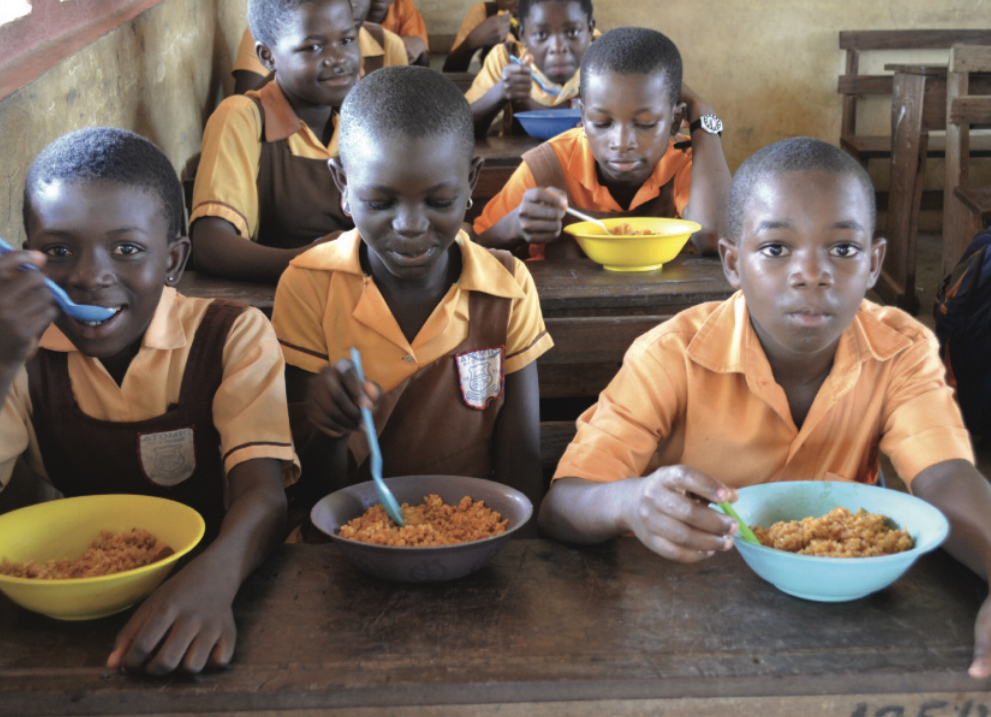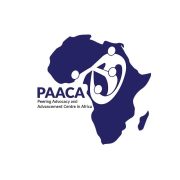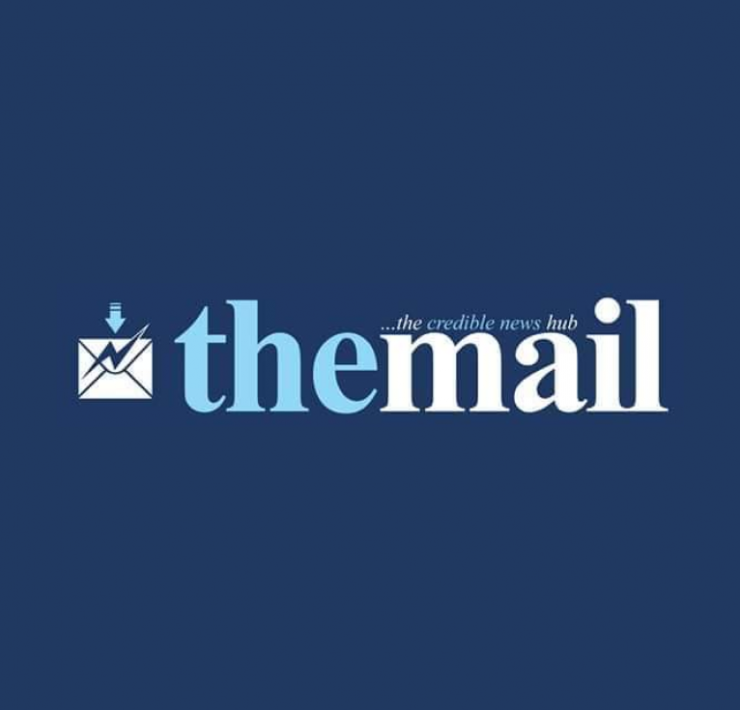How Nigeria’s School Feeding Programme turns conduit pipe for illicit financial flows

…NGO tackles oil multinationals for woes
Gladys (not her real name), a 9-year old orphan hails from Ibaka, a riverine community in Nigeria’s oil-rich Akwa Ibom State. She lives in Uyo with her aunt who is a hairdresser. While proceeds from her aunt’s business are barely enough to pay her children’s school fees and feed them, Gladys is left in the lurch. In spite of her tender age, she fends for herself. This has driven her to join her peers to form a group of five sachet water hawkers on the streets of Uyo, the state capital. She does this regularly including during school hours.
This is the ugly fate of millions of out-out school children in Nigeria. According to data from the United Nations International Children’s Emergency Fund (UNICEF), ‘one in every five of the world’s out-of-school children is in Nigeria’. The report says about 10.5 million of the country’s children aged 5-14 years are not in school.
In a bid to reduce the problem of out of school children in the country, Federal government of Nigeria in 2016 launched the National Home Grown School Feeding Programme in public primary schools with the aim of ensuring one solid quality meal a day for children in order to increase enrollment, reduce dropout rate and ensure quality learning outcome.
However, the implementation of the School Feeding Programme has been hindered by corrupt practices with huge sums of money meant for the programme illicitly diverted and laundered by its handlers.
Akwa Ibom State, an oil-rich state in the South-South region of the country is one of the states selected for the school feeding programme’s implementation. Unfortunately, the programme has been thwarted in the state as meals have not been provided for the pupils in the benefitting schools since September 2022.
Oil Companies Evaded Taxes Could Sustain School Welfare Programmes
Nigeria Extractive Industries Transparency Initiative (NEITI) has identified three enablers of illicit financial flows (IFFs) in Nigeria’s extractive industries.
According to NEITI, bribery and corruption, illegal resource exploitation, and tax evasion are the main channels of IFFs in the country’s extractive industry.
Findings reveal that an average of N1.3 trillion is diverted by multinational oil companies operating in the state annually from tax evasion. This amount, if utilized, can cater for the needs of impoverished out-of-school children in the state. Akwa Ibom State is the second highest producer of crude oil in Nigeria. For several decades, multinationals like Exxon Mobil, Total E&P Nigeria Limited, Amni International Petroleum Company Limited and Addax have been operating in the state.
Policy Alert Calls for Action against Oil and Gas Companies
Given the scenario, Policy Alert, a Nigerian non-profit organisation working for improved development outcomes in the areas of economic governance and environmental justice has blamed the oil and gas companies operating in the region for the economic woes bedeviling the people including school children, describing it as a ‘resource curse’. Programme Officer (Energy, Extractives and Climate Justice) in the organization, Mr. Mfon Gabriel in a chat with this reporter also urged Akwa Ibom State government to absorb the school feeding programme and own it so as to ensure it is efficiently managed.
Mr Gabriel berated the oil and gas companies for refusing to set up host communities Trust (committee) for the purpose of developing oil and gas host communities. Nigeria’s Petroleum Industry Act, 2021 mandates the incorporation of host communities’ development Trust by oil and gas companies.
Section 236 of the PIA provides for the timeframe for the incorporation of the Trust. The section requires the Trust to be incorporated within 12 months from the effective date of the Act; that is within 12 months from 21 August 2021 being the effective date. In other words, for existing oil companies, the incorporation of the Trust was expected to take place on or before the 20th of August 2022. Sadly, this directive has been flouted by oil companies operating in Nigeria.
Penalties for non-compliance are stipulated in the PIA as well as the Nigeria Upstream Petroleum Host Communities Development Regulations 2022 (the Regulation) issued by the Nigerian Upstream Petroleum Regulatory Commission (the Commission) on 24 June 2022. Mr. Gabriel called for the stipulated penalties to be invoked against the erring companies.
The NGO called on the government to increase taxes on multinational oil companies based in the state in an effort to boost social programmes such as the ailing school feeding scheme.
On his part, the Coordinator of Peace Point Development Foundation, a foremost NGO tackling environment injustice in Nigeria’s Niger Delta Region, Umo Isuaiko, said the oil and gas communities have rather increased the poverty level of the people as they keep depriving them of their accrued revenues.
Speaking with this reporter, Isuaiko noted that it was worrisome that some influential multinational oil and gas companies have in recent times indulged in divestment of shares to indigenous companies, noting that such was an evasive strategy for them to divert accumulated tax revenues owed the government and the host communities.
The NGO therefore called on the federal government to put in place machinery for divestment by multinational oil companies operating in the country. He said, “they (oil multinationals) are running away from responsibility. They exploit all the communities and when they see that the oil reserve was almost totally depleted they now begin to look for local companies to inherit their liabilities. Let them clean up the mess, pay their debts before going. They should not be forced to stay but it’s wrong that this keeps happening.”
According to media reports, the Shell Petroleum Development Company of Nigeria (SPDC), Total Energies, a French multinational oil company, ExxonMobil, Chevron and Agip Oil Company are some oil and gas multinationals operating in Nigeria that have divested their shares.
Government Agency Reacts
The Nigerian Upstream Petroleum Regulatory Commission, (NUPRC), an agency of government charged with the statutory responsibility of ensuring compliance to petroleum laws, regulations and guidelines in the Upstream Oil and Gas Sector in Nigeria says it was aware of the illicit practices by the many oil and gas companies that have deprived host communities and the government of funds for development.
NUPRC’s Head, Public Affairs Unit, Mr. Adamu Garba however blamed the lack of cooperation among leaders and members of oil producing communities as a contributing factor to the fragrant non-compliance with legal provisions in setting up Trust Funds for development of the communities by the IOCs.
He explained: “Some of the communities are responsible for the shortcomings. You know the Nigerian factor. Instead of organizing and appointing the Trust committee members, one faction would say they are responsible and another faction would come and say they are responsible. So what we did, we advised some of them to come to our alternative conflict resolution centre to resolve such issues.”
Garba, however, said that a total of 80 Trust have been established in the country, but regretted that most of them have refused to remit the required 3 percent of the annual operation cost to the Trust account for development of the host communities. He added that penalties for the defaulting IOCs will soon be implemented.
Meanwhile, all efforts to get responses from some prominent international oil companies operating in the state proved abortive as they failed to respond to the freedom of information request sent via their official emails provided on their websites while also not responding to phone calls for enquiries. The three companies contacted by this reporter, Exxon Mobil, Total E&P Nigeria Limited and Amni International Petroleum Company Limited all failed to reply to the messages.
*This story was produced by TheMail Newspaper. It was written as part of Wealth of Nations, a media skills development programme run by the Thomson Reuters Foundation. More information at www.wealth-of-nations.org. The content is the sole responsibility of the author and the publisher.”









